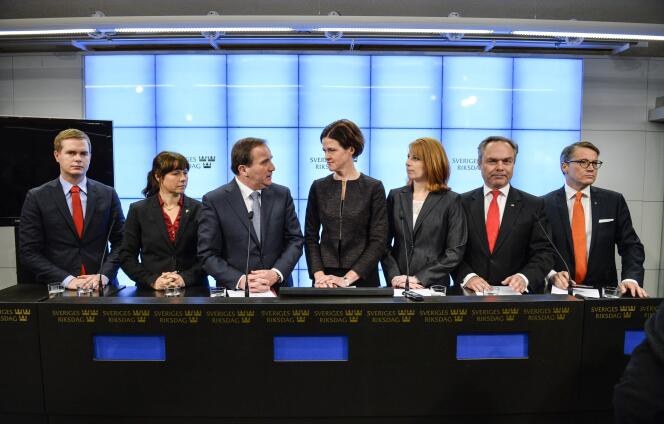

LETTER FROM MALMÖ

Some may remember the Toblerone affair. In 1995, Mona Sahlin, Sweden's minister for labor and favorite to lead the Socialist Party, was forced to resign after a newspaper revealed that she had used her ministry credit card to pay for her shopping – including a bar of the famous Swiss chocolate. For a long time, this anecdote and others like it fuelled the idea abroad that Sweden had zero tolerance for anything remotely resembling corruption.
The Swedes also believed this narrative, regularly confirmed by the NGO Transparency International, which placed the Scandinavian kingdom at the top of the rankings of countries considered the least corrupt. They are now realizing that they may have been wrong. "The problem is that corruption is not part of our self-image. As a result, we don't call corruption what it is, and then it's as if it doesn't exist," said Olle Lundin, Professor of Public Law at Uppsala University and one of Sweden's leading experts on the subject.
One such case is currently making headlines: Former Conservative party leader Anna Kinberg Batra, who was appointed Stockholm County governor in March 2023, is accused of having hired at least three people close to her for high-paying positions, without looking for other candidates – apart from posting an advertisement in a corridor near her office. "Of course, in retrospect, I understand that it wasn't right," she said, responding to criticism from those calling for her to resign.
Three weeks after the scandal broke, Kinberg Batra is still in office. The anti-corruption prosecutor's office has decided not to open an investigation. According to Lundin, the Stockholm County governor can rest easy. "In a few weeks, everyone will have forgotten about this affair." In the general public debate, Lundin is one of the only people who dares to talk about corruption, "because it is corruption and you'd say it in any other country," he said, referring to a widespread and too long underestimated phenomenon, which extends far beyond the petty arrangements between Kinberg Batra and her friends.
The Swedes are beginning to take notice. In January, Sweden recorded its worst-ever ranking in Transparency International's Corruption Perceptions Index, carried out annually since 1995. In sixth place, the Nordic country still ranks very highly, but its score has never been so low and, above all, the kingdom has fallen behind its Finnish, Danish and Norwegian neighbors. In the latest European barometer on citizens' attitudes to corruption, published in May 2023, 36% of Swedes surveyed felt that corruption was "quite ordinary" in their country, compared with 32% in 2022.
You have 51.73% of this article left to read. The rest is for subscribers only.
